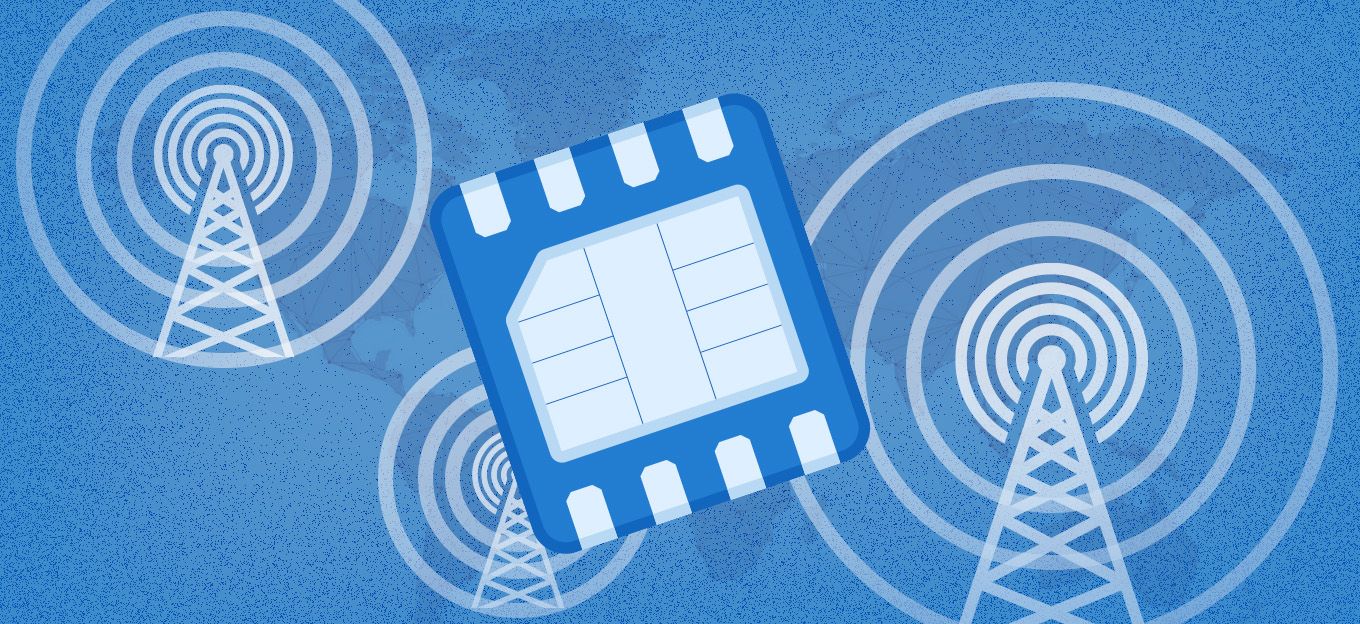IoT SIM and Phone SIM: What's the Difference?
IoT SIM and Phone SIM: What's the Difference?
- Last Updated: December 2, 2024
ZARIOT
- Last Updated: December 2, 2024



Unlike smartphone SIMs, IoT SIM cards are specifically designed for smart devices by allowing devices to communicate with each other, ensuring global coverage, updating features over the air (OTA), and providing more extended features. This makes it easier for businesses to automate processes, increasing operational efficiency and accelerating scalability while maintaining gold standards of security.
In this article, we look closer at the (dis)similarities between an IoT and phone SIM regarding coverage and roaming capabilities, security, user management and control, and additional features and explore why cellular IoT is an ideal connectivity option for your digital transformation.
Coverage
Think of your smartphone SIM. A 12-24 month fixed-term contract likely outlines the terms that bind the device to a single network and operator. Under this arrangement, you pay a monthly bill for defined services such as data usage.
When traveling beyond the borders of your home network, you often incur significant additional roaming rates. These rates vary depending on the roaming agreements that your provider has with foreign networks.
Imagine the business implications of such an agreement for your IoT devices which extends to:
- Sourcing and managing different connectivity providers on a per-country basis and having to adhere to varying contracts and costs
- Terms determined by network operators, making altering of contractual terms a complicated process
- Unfavorable roaming charges when deploying devices in different regions
- Increase manufacturing and inventory costs to manufacture and distribute devices globally
Unlike inflexible, costly phone SIMs, IoT SIMs open up possibilities to enable your success.
- A single IoT SIM can have access to multiple local networks across different countries. This eliminates hassle associated with managing multiple contracts and SIMs
- IoT SIMs seamlessly switch between networks, prioritizing the best available cellular network
- Accommodate your specific business needs with pay-as-you-use IoT centric pricing
Security
Smartphone SIMs have dynamic private IP addresses (IPv4) assigned by the network when they connect which may even change over time. However, most IoT SIM service providers use static IP addresses in combination with a virtual private network (VPN) for added security.
Static IP addresses remain the same until a device is decommissioned, or the network architecture changes. This allows service personal to remotely login to the device and execute commands, analyse log files or change configurations.
But the reality is that static IPs are more vulnerable. With a static IP address, bad actors know exactly where your server or device is by scanning the network, making it easier to attack it.
This is why it is common practice for IoT connectivity providers to give you a way to securely manage your IoT devices, without the need for static IP address, IP ports or VPN and firewalling equipment.

Control
Regular SIMs for consumer devices largely omit user interfaces and management platforms as there exists little need amongst the average user base. This means you are missing out on valuable insights into device functionality and monitor for abnormalities.
For example, to reduce costs you may want to specify parameters for data usage and set an alarm to automatically disable a rogue device that exceeds usage limits, lowing data costs.
Real-time, 24/7 analytics and reports on connectivity, data volume, usage for each device, and the ability to manage and customize these options are additional perks.
A management platform is also crucial to maintain reliability, especially if devices are deployed where accessibility for service personnel is limited. These platforms allow for multi-tenancy which enable you to easily deploy, pause, resume or cancel your IoT SIM card at any time.
Bonus Features
Additionally, IoT SIMs also offer the following that regular smartphone SIMs do not:
- End-to-end data encryption using the SIM as the root of trust which also helps you stay ahead of evolving global data privacy and cybersecurity regulations
- eUICC enabled SIMs allow you to upgrade technology in current or older models of devices without having to replace existing infrastructure with fully backward compatible solutions
- Dedicated customer support to reduce waiting time and uncertainty to resolve issues or accelerate your IoT roll out
Conclusion
IoT SIMs enable the rapid scaling of your IoT solutions, while futureproofing your business model. The additional capabilities allow you to easily manage devices and optimize operations, without compromising on security and reliability of data transmissions.
The Most Comprehensive IoT Newsletter for Enterprises
Showcasing the highest-quality content, resources, news, and insights from the world of the Internet of Things. Subscribe to remain informed and up-to-date.
New Podcast Episode

IoT in 2026: Trends and Predictions
Related Articles


